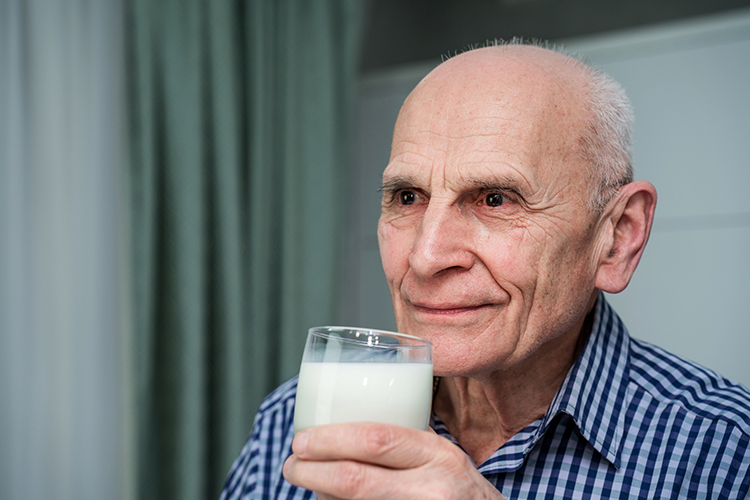
Muscle and bone health matters at every age. That’s why dairy products are not only an important part of the diet for children as they build muscle and bone density, but also for older adults as they face the natural degradation of muscle and bone integrity that comes with aging.
The Mayo Clinic’s lead dietician, Tara Schmidt, shared that message in a recent webinar from the top-ranking hospital for members of its healthy living program. Diet was a significant part of Schmidt’s discussion on best practices for healthy aging, which was put on with support from the National Dairy Council.
“Nutrition is a major determinant of successful aging,” she said, noting that nutritional needs change as we get older.
Physiologically, aging results in hormone changes, reduced metabolism, less muscle mass, cognitive decline, and a greater risk for weight gain, heart disease, diabetes, and osteoporosis. Following a healthy eating pattern is important to combat these concerns as much as possible.
In addition to consuming enough fruits, vegetables, and fiber, Schmidt discussed dairy’s place in the diet. “We know that there is a role for low-fat dairy and dairy in general to provide us with calcium and vitamin D. This can help reduce our risk and manage our muscle and bone health, fight against sarcopenia (age-related progressive loss of muscle mass), and either prevent or delay the onset of osteoporosis progression,” she said to attendees. “These are nutrients that older adults tend to fall short on — calcium, vitamin D, and potassium. I know that’s what dairy is most often known for, but there are actually 13 essential nutrients we can get from dairy,” she continued.
Schmidt highlighted five key nutrients that become more important as you age because the body isn’t making or absorbing as much of them: protein, calcium, vitamin D, vitamin B12, and omega-3 fatty acids. In discussing what foods provide these nutrients, she noted that milk is a source of all five.
Maintaining muscle and bone mass is important as a person gets older to help avoid weakness that can lead to falls and related injuries. Schmidt also explained that when you have less muscle, you will burn fewer calories in a resting state, which can lead to weight gain and issues such as diabetes.
Eating a healthy diet and being active helps support muscle mass and can fight against reduced metabolism, and she reminded that if you don’t use your muscles, you will lose them as you age. In fact, Schmidt’s four pillars of healthy aging are:
1. Nutrition
2. Strength training
3. Mental well-being
Sleep
All four factors are interrelated to each other. When each has a healthy foundation, it will help adults age well.








